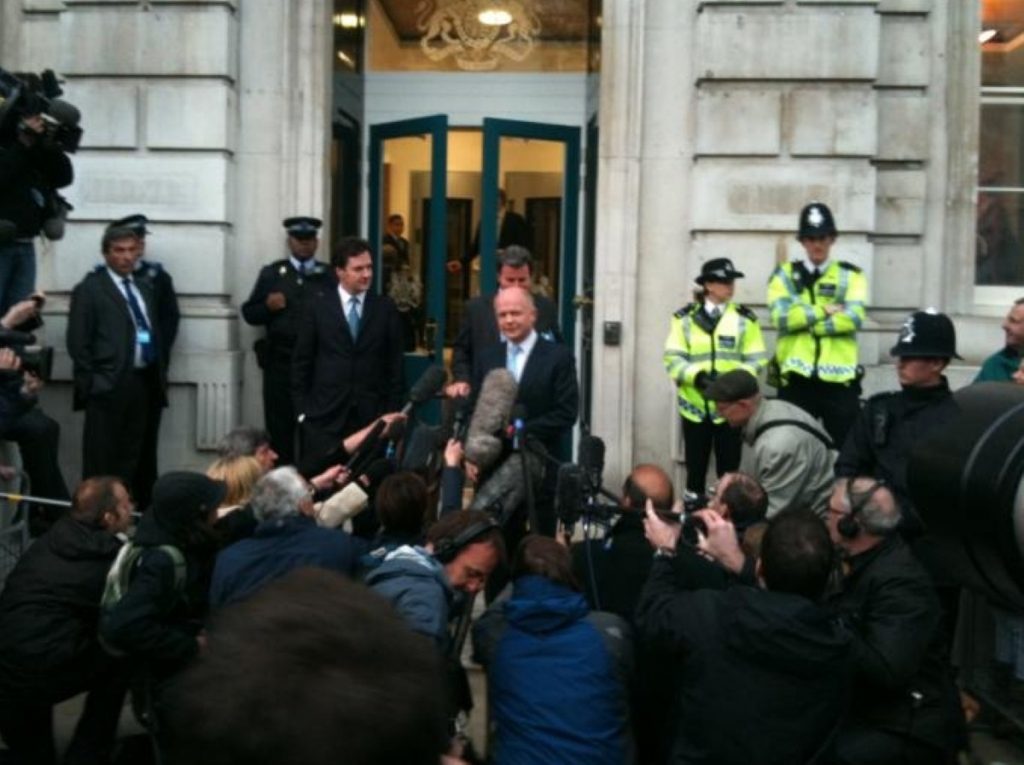Coalition rewrites post-election history
By politics.co.uk staff
David Cameron has denied misleading Conservative MPs during coalition talks with the Liberal Democrats, insisting he did not tell them Labour was offering Nick Clegg’s party electoral reform without a referendum.
The Lib Dems were eventually persuaded to enter into a formal coalition with the Conservatives, thereby allowing Mr Cameron to become prime minister, after the Tories agreed to support a referendum on voting reform.
The Conservative leader was asked whether he had misled Tory MPs by saying Labour would give the Lib Dems voting reform without a referendum during interviews for a BBC documentary to be broadcast tonight.
Mr Cameron replied: “No, because I was absolutely certain in my own mind that was the case and I had, I think, good reason to be certain.
“I had a number of people [who] had told me… what they thought was going on and conversations that were taking place about AV without a referendum.”
He added he had had a conversation with Mr Clegg in which he had argued “very vigorously that you couldn’t do alternative vote without a referendum – it would be wrong”.
It was widely understood at the time that Labour were prepared to legislate to secure a shift from the first-past-the-post system to alternative vote, while offering a referendum on a shift to proportional representation.
But Mr Clegg refused to confirm that such an offer had been made, telling the BBC that “it was an offer that might have been made” and “might have been considered” but one which had not directly been made to him.
He added: “In answer to your direct question was it ever formally made to me, no it wasn’t not formally made to me.”
Confusion over the precise course of the backroom negotiations does not appear to have improved significantly since the events took place.
Mr Cameron admitted he had told his wife Samantha Cameron 24 hours before he entered Downing Street that he was unlikely to become prime minister.
“On Sunday I was thinking I probably will be prime minister,” he said. “I was thinking by the end of Monday I definitely won’t be prime minister.”





-01.png)